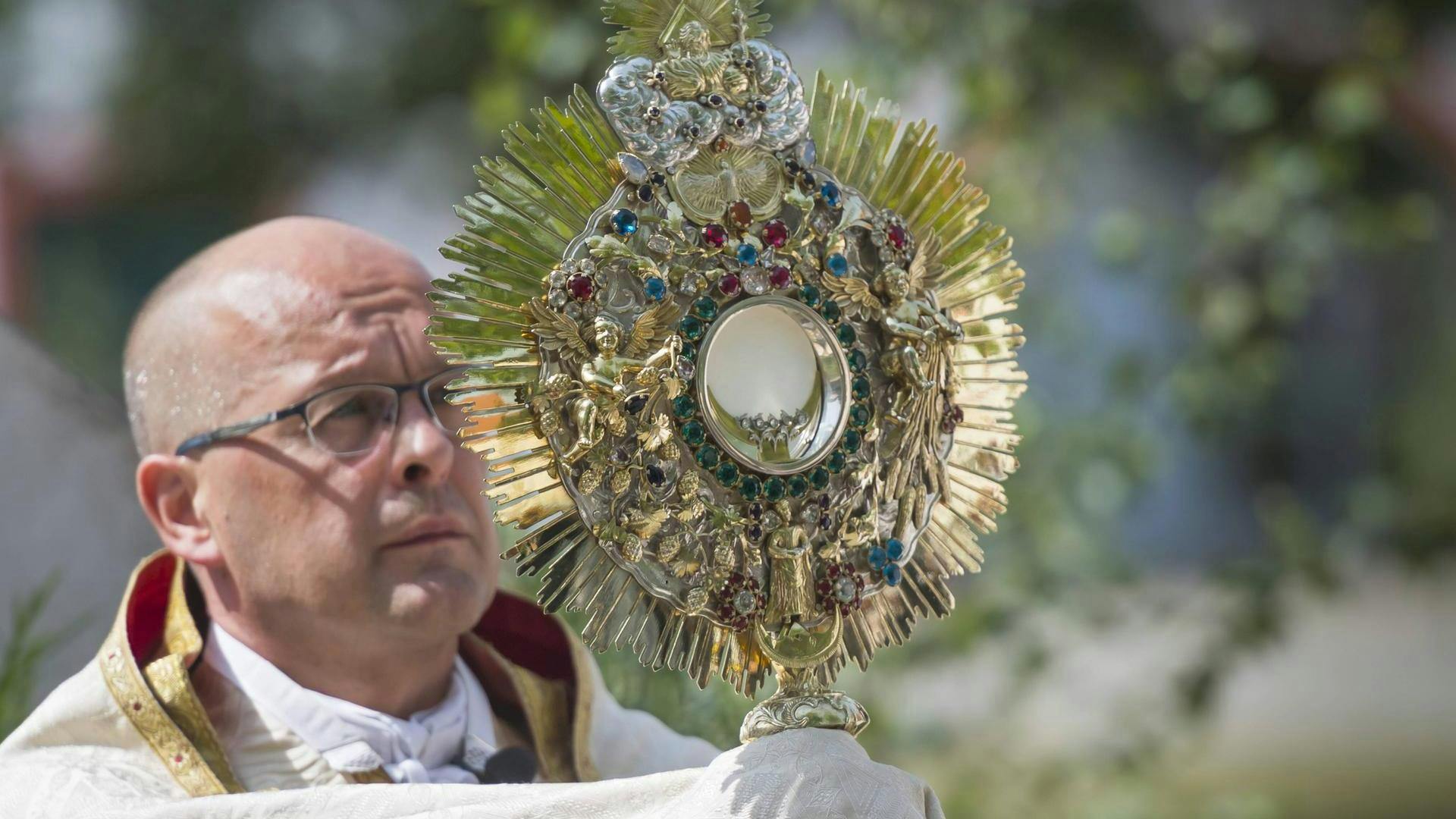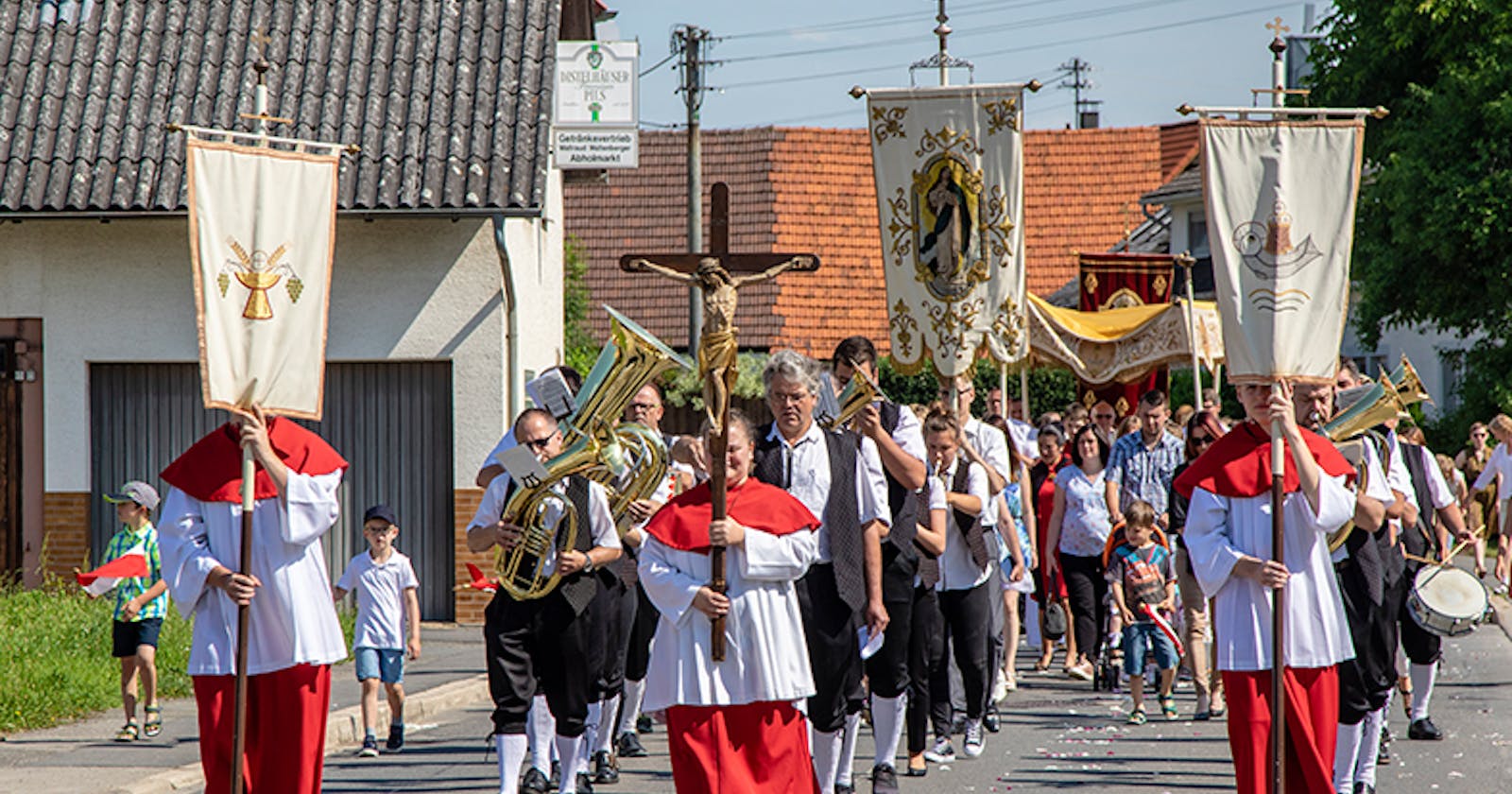In addition to ongoing STEM research and imaging activities, new content is added every week. The last in a series of Easter holidays in Germany is today, 20 June, Corpus Christi, an important day especially for Catholic churchgoers. The day itself comes 60 days after Easter Sunday, which falls on a Thursday. Corpus Christi or Corpus Christi is celebrated in the Rhineland, Palatinate, Baden-Württemberg, Bavaria, Hesse, North Rhine-Westphalia and Saarland. In areas with a predominantly Catholic population, Catholic communities in Saxony and Thuringia also celebrate the day. Fronlechnam, an important day especially for Catholic churchgoers, is a public holiday in eight German states, but not in all. Corpus Christi is a Christian holiday celebrated on the Thursday after Trinity Sunday, eight weeks before Easter Sunday and one week before Pentecost (Pentecost Sunday). It is also known as the Feast of the Holy Body of Christ, the Day of the Wreath. The Corpus Christi feast is a liturgical solemnity of the Roman Rite, which celebrates the reality of Jesus Christ in the Eucharist (also called Transsubstantiation) of the body and blood of the Son of God.
Corpus Christi and Corpus Christi, the Catholic Eucharist, are beautiful examples of the closely related cultures and religions of Austria. Despite a Protestant Calvinist upbringing, the colourful procession that accompany many Catholic religious holidays were new to us when we arrived in Tyrol. It felt like we were going backwards in time as we passed through our first Corpse Procession (Tulfe, 2010). At the beginning of the summer, the ten-day Pentecost of Corpus Christi, also known as Corpus Christi in Germany, falls on a Thursday to commemorate the Holy Eucharist of the Body and Blood of Jesus Christ. This Thursday is a public holiday in some parts of Germany and you will be spoiled with the sight of large processions of people wearing traditional clothing parading the streets, singing prayers and hymns accompanied by parishioners carrying carved statues of the Virgin Mary and other saints if you are in the right place at the right time. We arrived looking for a nice traditional feast. The priest and altar boys lead the procession under a canopy with the Blessed Sacrament. A quotation from the antiphon of the Solemnity Corpus Domini (Eucharist) describes the anticipation of the earth to heaven.
 The pastor and the mayor appear and are informed by the chief protector of the procession. Following the procession, services are held in the open air, and the city stops to decorate the altars along the route. Corpus Christi is celebrated on the 2nd Thursday of Pentecost Sunday.
The German name for the festival, Corpus Christi, comes from the Middle or High German word vronlicham (vron), which means "Lord," and Licham, which means "body.". The English name Corpus Christi comes from Latin and has the same meaning as "Body of Christ.". The declension of the noun Fronlingnam is (a) in the singular (genitive) and (b) in its e in the plural (nominative).
For German learners, the correct declaration of Corpus Christi is crucial. The church of St. Corpus Christi in Aachen is one of the key projects in modern church architecture in Germany. Its reduced cubic shape, its straightforward and simple design was revolutionary when it was built in the 1930s and remains controversial to this day.
The pastor and the mayor appear and are informed by the chief protector of the procession. Following the procession, services are held in the open air, and the city stops to decorate the altars along the route. Corpus Christi is celebrated on the 2nd Thursday of Pentecost Sunday.
The German name for the festival, Corpus Christi, comes from the Middle or High German word vronlicham (vron), which means "Lord," and Licham, which means "body.". The English name Corpus Christi comes from Latin and has the same meaning as "Body of Christ.". The declension of the noun Fronlingnam is (a) in the singular (genitive) and (b) in its e in the plural (nominative).
For German learners, the correct declaration of Corpus Christi is crucial. The church of St. Corpus Christi in Aachen is one of the key projects in modern church architecture in Germany. Its reduced cubic shape, its straightforward and simple design was revolutionary when it was built in the 1930s and remains controversial to this day.
I need not say goodbye to Vienna, she said; the Viennese have always been raptured by me, and would have been annoyed at every opportunity if I had not shown them the deed they had done on Holy Saturday or during the procession on Corpus Christi. The Sitges Cultural Events Calendar includes important events such as the International Classic Car Rally classified as a National Tourist Value, the International Cinema Festival of Catalonia and the celebrations in Fronleichnam.

